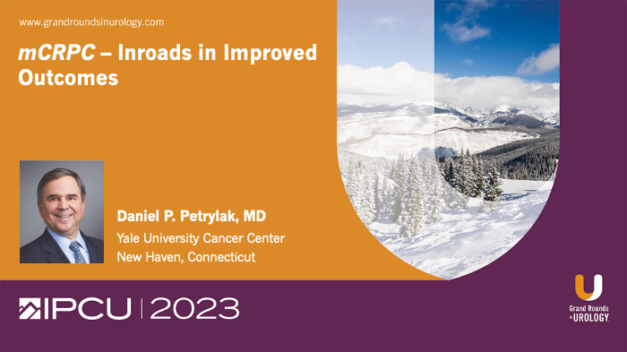Advanced Prostate Cancer Challenging Case Discussion
Daniel P. Petrylak, MD, moderates this discussion panel on challenging prostate cancer case studies. Dr. Petrylak describes the first case whereby a patient had a prostate specific antigen (PSA) of 24 and underwent radical prostatectomy; his PSA never normalized and rose to 40. Androgen deprivation therapy (ADT) commenced and continued for five years until his PSA rose despite a castrate testosterone level. The patient’s bone scan demonstrated sacral metastases. Testing demonstrated no germline mutations and the patient received Sipuleucel T and began treatment with abiraterone/prednisone; PSA nadired at .4. A year and a half later the patient’s PSA rose to 4.8 and he was found to have stable bone metastases.
After the panel decides on a treatment plan for the first case, Dr. Petrylak moves to the second case, whereby a patient presented with celiac, para-aortic and iliac chain lymphadenopathy, early right-side hydronephrosis, a PSA of 19.4, and a biopsy of the left neck lymph node mass showed metastatic adenocarcinoma consistent with prostatic primary. Treatment included bicalutamide/leuprolide, switching to abiraterone/prednisone. In six months, PSA was undetectable. The patient progressed in terms of the soft tissue disease and required a stent for the hydronephrosis, began docetaxel with no response after five cycles, and started cabazitaxel with cycles three and four dose-reduced due to neuropathy.
Read More



